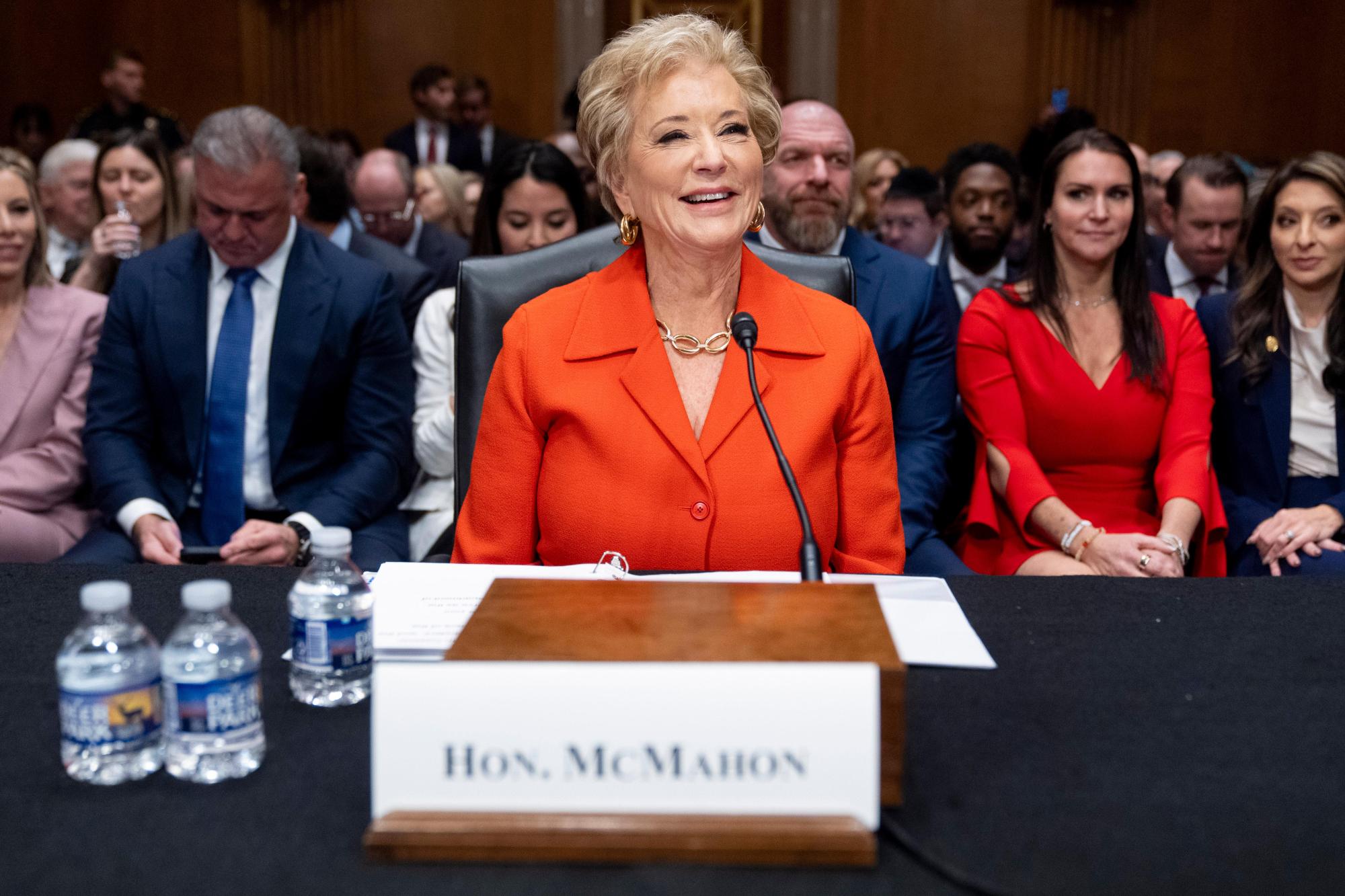Linda McMahon’s nomination to become Secretary of the U.S. Department of Education moves forward after a narrow Senate committee vote. The advancement comes as the Trump administration seeks to dismantle the federal agency, intensifying debates over the future of education in the United States.
Committee approves Linda McMahon to lead Education Department

Key Takeaways:
- Senate Committee Approves McMahon’s Nomination: The Health, Education, Labor, and Pensions Committee voted 12-11 along party lines.
- Vote Reflects Deep Partisan Divide: All Democrats opposed the nomination, highlighting political tensions.
- Trump Administration Seeks to Dismantle Education Department: Efforts are underway to significantly overhaul or eliminate the agency.
- Concerns Over Impact on Vulnerable Students: Potential effects on low-income and disabled students have been raised.
- McMahon Commits to Reorienting, Not Abolishing, the Department: She plans to work with Congress to reshape the agency.
McMahon’s Nomination Moves Forward Amid Plans to Overhaul Education Department
A Senate committee approved Linda McMahon’s nomination to become Secretary of the U.S. Department of Education on Thursday, moving her one step closer to confirmation as the Trump administration seeks to dismantle the federal agency.
Partisan Vote Reflects Deep Divisions
The Senate Health, Education, Labor, and Pensions Committee met briefly and voted along party lines, resulting in a 12-11 approval for McMahon’s appointment. U.S. Sen. Chris Murphy (D-Conn.), a committee member, voted no alongside all Democratic senators, underscoring the political divide over the nomination.
Democrats Voice Concerns Over Education’s Future
During the hearing, Sen. Bernie Sanders (I-Vt.) expressed apprehension about the administration’s intentions. “It really doesn’t matter who the Secretary of Education is… because those people will not be calling the shots,” Sanders remarked. He emphasized the federal government’s responsibility to ensure quality education for low-income students and those with disabilities. “Should we abolish it? No,” he said regarding the Education Department.
Republicans Support McMahon and Agency Overhaul
Republican senators rallied behind McMahon, defending the Trump administration’s plans to significantly overhaul the department established during President Jimmy Carter’s administration. Sen. Markwayne Mullin (R-Okla.) criticized stagnant test scores, stating, “God forbid that President Trump comes in and actually wants to make changes.”
Trump’s Agenda to Dismantle the Department
McMahon’s nomination occurs as President Trump prepares an imminent executive order to dismantle the Education Department, seeking to fulfill a longstanding campaign promise. However, McMahon acknowledged that the administration lacks authority to unilaterally eliminate a department created under federal statute without congressional approval.
McMahon Pledges to Reorient the Department
Testifying before the committee, McMahon, 76, stated she would collaborate with Congress “to reorient the department.” She suggested that programs like the Individuals with Disabilities Education Act could be transferred to other agencies, such as the U.S. Department of Health and Human Services.
Debate Over Impact on Vulnerable Students
Lawmakers questioned how essential programs might change under Trump’s overhaul plans. Concerns focused on Title I funding for low-income schools, Pell Grants for college aid, and special education services. Democratic senators feared that dismantling the department could jeopardize support for vulnerable student populations.
Questions Surround Diversity and Inclusion Efforts
Sen. Murphy challenged McMahon on Trump’s executive order to end diversity, equity, and inclusion (DEI) initiatives. Schools receiving federal funding are uncertain about compliance. When asked if celebrating Martin Luther King Jr. Day or teaching African American history would violate the order, McMahon’s responses were inconclusive. “That’s pretty chilling,” Murphy responded.
Next Steps in the Confirmation Process
With committee approval secured, McMahon’s nomination proceeds to the full Senate for a confirmation vote. If confirmed, she will lead the department amid significant efforts to downsize the federal government and reevaluate its role in education.
Conclusion: An Uncertain Future for Federal Education Policy
As McMahon’s nomination advances, debates over the future of the U.S. Department of Education intensify. The outcome will have far-reaching implications for federal education programs and the students they serve, particularly those from low-income backgrounds and with disabilities.











